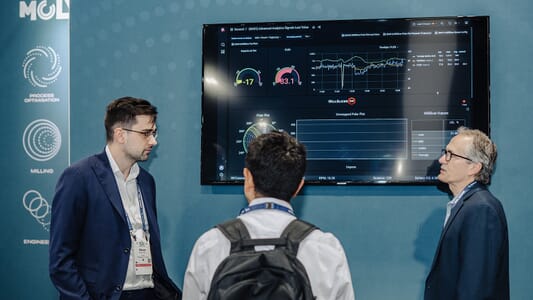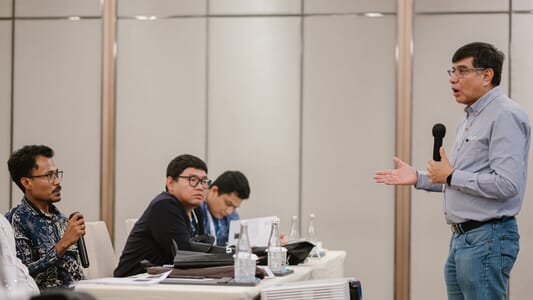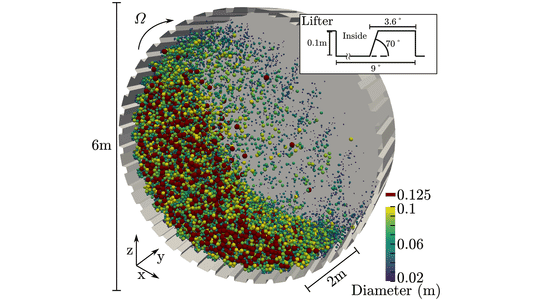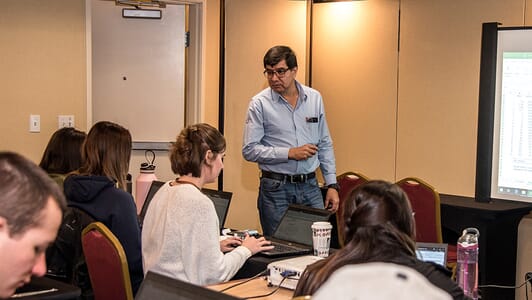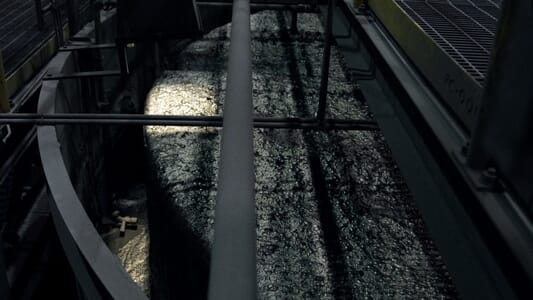Molycop’s leaching team in Perth, Australia, is improving gold recovery by blending advanced instrumentation with technical insights and on-site expertise.
Key Facts
- Molycop’s leaching engineers work collaboratively with customers to turn data into practical leaching improvements that boost gold recovery.
- Advanced automation and intuitive instrumentation simplify complex processes, allowing operators to focus on results with confidence.
- Molycop’s expertise is setting new benchmarks for efficiency and sustainability in gold recovery.
Molycop's leaching team in Perth, Australia, straddles both fields by combining cutting-edge instrumentation with an ability to understand customers' challenges and needs.
Three of the engineers in the team – Omar Sultan, Israel Moyo and Arqam Tariq – shared their perspectives on where leaching optimisation stands today, and where it’s headed.
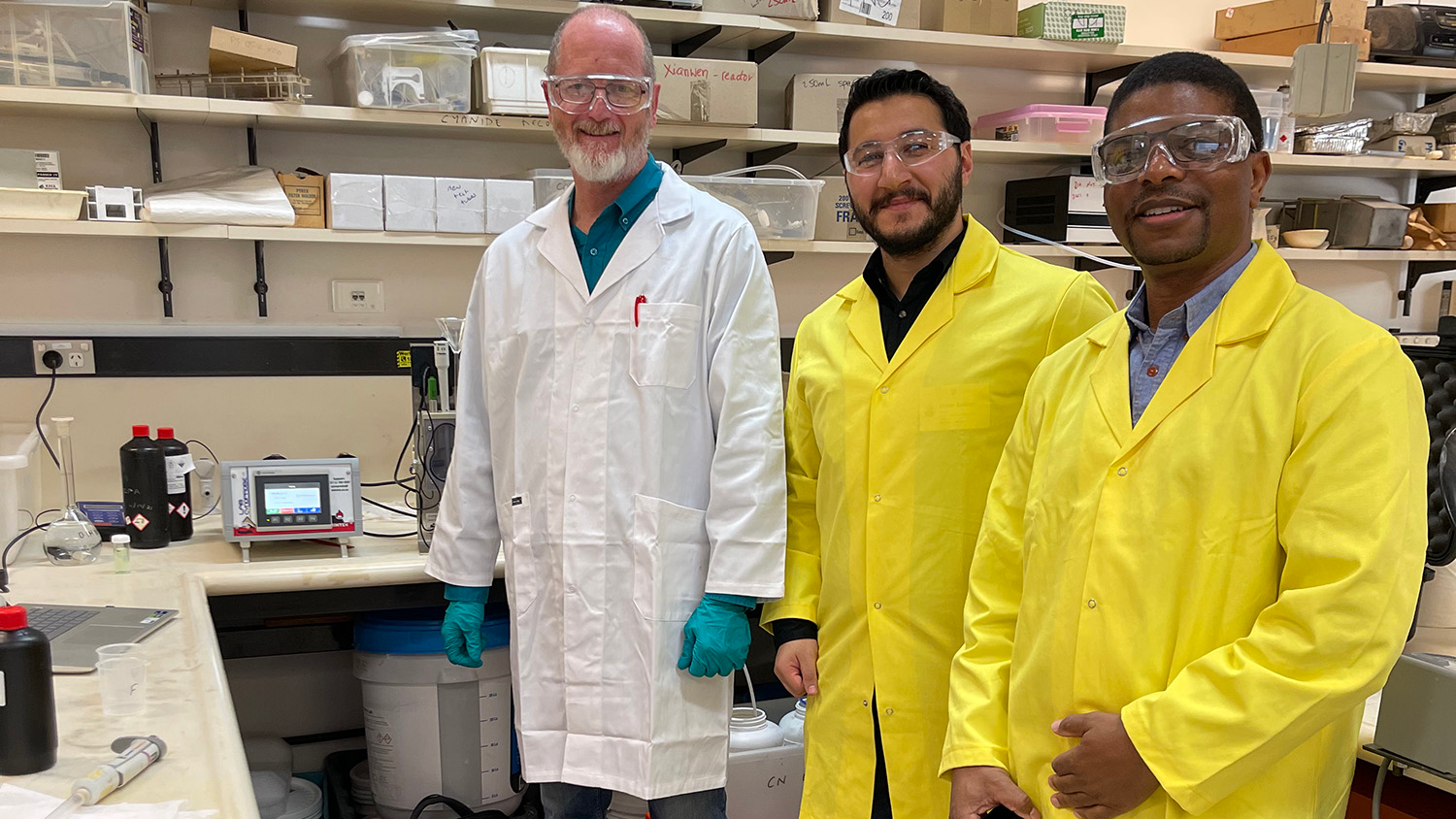 (Left to right): Adrian Paine, Molycop Manager: Gold Processing, with Omar Sultan and Israel Moyo.
(Left to right): Adrian Paine, Molycop Manager: Gold Processing, with Omar Sultan and Israel Moyo.
A practical approach to smarter leaching
Process Engineer Omar Sultan says his job is about more than models and flowsheets. It’s about translating numbers into meaningful improvements:Working directly with clients has helped me focus on practical, site-specific solutions. I now approach leaching optimisation by combining real-time data from Molycop Cynoprobe with plant feedback to improve recovery, optimise cyanide use and solve issues collaboratively.
Omar believes the industry is on the cusp of major change. “The future is moving toward greater integration of smart sensors, automation and alternative reagents,” he says. “The goal will be processes that are safer, cleaner and more cost-effective – while still delivering high recovery rates.”
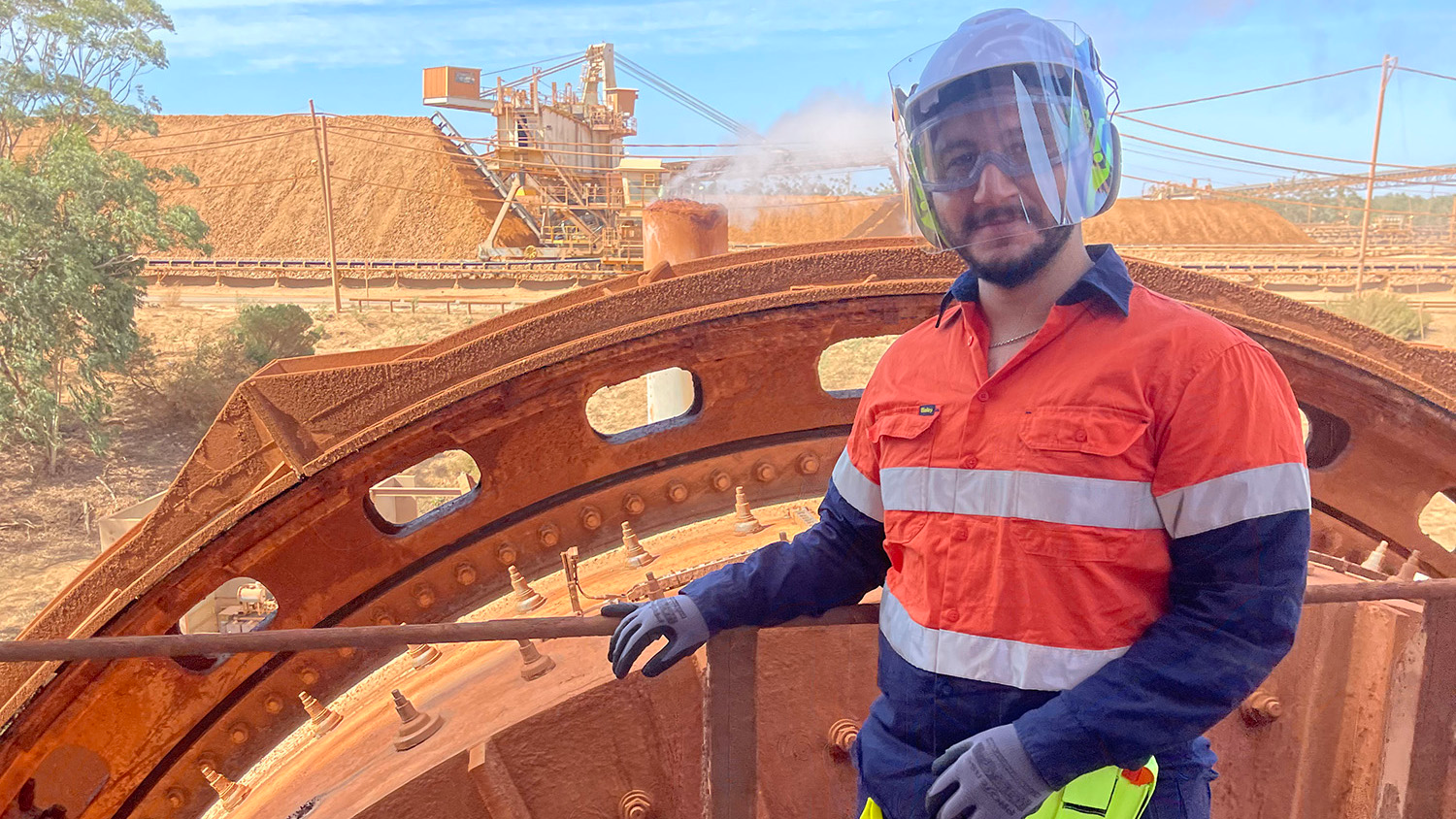 Omar says working directly with clients has helped him deliver practical, site-specific solutions.
Omar says working directly with clients has helped him deliver practical, site-specific solutions.
Building trust through technology
Instrumentation is often the invisible backbone of leaching operations. Senior Instrument Technician Israel Moyo says the most rewarding part of his role is watching operators build trust in the technology:Seeing the relief on new customers when they finally get to appreciate how the machine works, and how relevant it is for their system – that’s the best part for me.
Israel points to automation as one of the most exciting shifts ahead.
“The automation that shoulders all complexities for the customer and is proactive in its approach really excites me,” he explains. “It allows the customer to sit back and simply take the results as truth, which changes the way they engage with the process.”
Precision, customisation and control
For Instrumentation Engineer Arqam Tariq, no two operations are alike – and neither are their leaching needs.“Each gold operation requires customised cyanide and carbon control based on ore characteristics, flow rates and environmental regulations,” Arqam says. “Collaborating with different clients in different environments gives us the chance to test our knowledge and ensure equipment is properly sized and integrated. That minimises reagent costs and reduces environmental impact.”
Looking to the future, Arqam sees instrumentation moving well beyond traditional monitoring:
Future systems will support advanced algorithms and machine learning models that adapt to ore variability and operational changes in real time. They’ll integrate seamlessly with plant-wide control systems, enabling remote monitoring and expert support from anywhere in the world.

